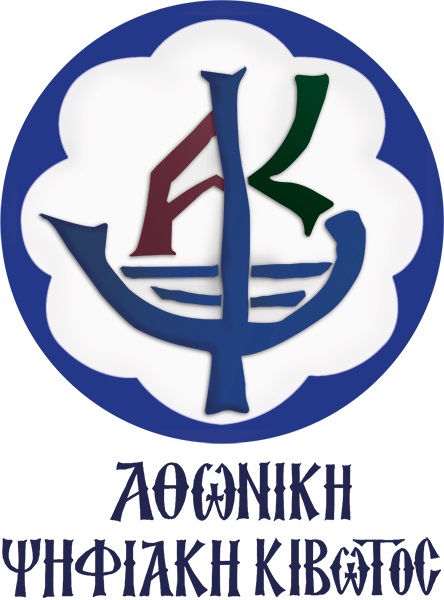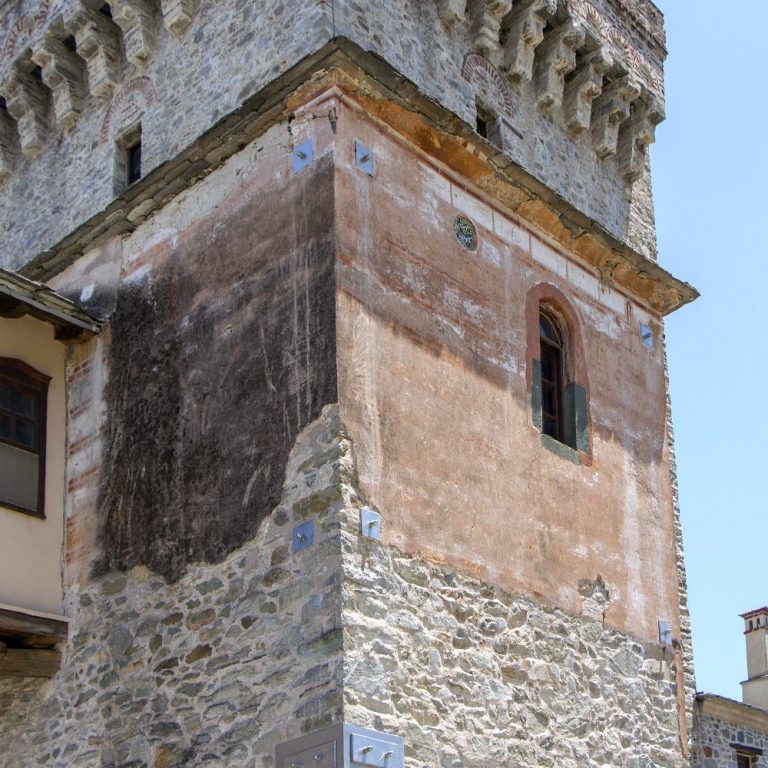The Source Of Its Name
The Karakallos Monastery is included among those monasteries which were founded during the first 50 years after the appearance of organized, cenobitic life on the Athos peninsula, which chronologically coincides with the presence there of St Athanasios the Athonite and the founding of the Great Lavras Monastery.
The source of the name of the Monastery remains uncertain, a fact which led to the creation of a variety of myths and legends. In 1677, the British traveler J. Covel records the legend that the founder of the Monastery was the Roman Emperor of the 3rd century Antonios Karakallas. This view was very quickly adopted by both Ioannis Komemnos in his 1698 work Προσκυνηματάριό (The Pilgrim’s Book), and in the middle of the next century by Barski (1744). In general, it appears that the legend of the Roman Emperor as founder circulated quite widely in the Monastery during the 18th century, to the degree that it was recorded by the artist of the cemetery church of All Saints (1768), where the surviving inscription Vas. Karakallas in a partially-destroyed fresco can still be read today. An alternate version to this legend names Nikolaos Karak(a)la as founder, said to have come from the small town in Vlachia called Caracal, which is claimed to have been founded by the same Emperor Karakallas.
Other versions connect the name of the Monastery with the surname of the well-known 17th century Peloponnesian family Karakallou or Karak(al)a from Dimitsana, from which family many bishops came, including Kyrilllos V Karakallos (1748-1751, 1752-1757) of Konstantinople. However, this explanation is also doubtful. Likewise, the name of the Monastery is not related to the family with the similar Italian surname, but to the Greek aristocratic family of Caraccioli. This version had likely already been circulated in the West by the beginning of the 18th century, since it is recorded by the Jesuit monk Branconnier, who visited Mt Athos in 1706. In the 19th century, the Italian Francois Caracciolo, probably a descendant of the similarly-named family, theorized that the name of the Monastery is related to his family, even carrying out thorough investigations within the Monastery itself, none of which yielded evidence to support his claim.
In an earlier reference to its origins in 1018, the Monastery is called Karakalou or Karkalous, while its name appears as the Monastery Karakalou in subsequent references until 1142; yet in the same year, a reference to the Monastery as Karakala has been found. Until the 14th century, it is referred to in both ways, although more prominence and weight was given to the form Karakalou during that period. It also seems unlikely that the name of the Monastery might have a Turkish origin (kara + koules, ‘stone castle’), is correct, since in the era of its founding, the Seljuk Turks had not yet appeared on the historic stage.
The origin of the name most likely is connected with some aspect of the identity of its founder. This possibility was suggested in the 14th century by Filotheos Kokkinos in the Life of St Germanos Marouli. However, neither the name Karakal(l)os nor Karakal(l)as are recorded during the middle Byzantine years, and the surname Karakalos becomes known only at the end of the 13th century, when it refers to the Metropolite Nikomideias Karakalo (1289-1309), whose name has not been passed down.
The source of the name of the Monastery remains uncertain, a fact which led to the creation of a variety of myths and legends. In 1677, the British traveler J. Covel records the legend that the founder of the Monastery was the Roman Emperor of the 3rd century Antonios Karakallas. This view was very quickly adopted by both Ioannis Komemnos in his 1698 work Προσκυνηματάριό (The Pilgrim’s Book), and in the middle of the next century by Barski (1744). In general, it appears that the legend of the Roman Emperor as founder circulated quite widely in the Monastery during the 18th century, to the degree that it was recorded by the artist of the cemetery church of All Saints (1768), where the surviving inscription Vas. Karakallas in a partially-destroyed fresco can still be read today. An alternate version to this legend names Nikolaos Karak(a)la as founder, said to have come from the small town in Vlachia called Caracal, which is claimed to have been founded by the same Emperor Karakallas.
Other versions connect the name of the Monastery with the surname of the well-known 17th century Peloponnesian family Karakallou or Karak(al)a from Dimitsana, from which family many bishops came, including Kyrilllos V Karakallos (1748-1751, 1752-1757) of Konstantinople. However, this explanation is also doubtful. Likewise, the name of the Monastery is not related to the family with the similar Italian surname, but to the Greek aristocratic family of Caraccioli. This version had likely already been circulated in the West by the beginning of the 18th century, since it is recorded by the Jesuit monk Branconnier, who visited Mt Athos in 1706. In the 19th century, the Italian Francois Caracciolo, probably a descendant of the similarly-named family, theorized that the name of the Monastery is related to his family, even carrying out thorough investigations within the Monastery itself, none of which yielded evidence to support his claim.
In an earlier reference to its origins in 1018, the Monastery is called Karakalou or Karkalous, while its name appears as the Monastery Karakalou in subsequent references until 1142; yet in the same year, a reference to the Monastery as Karakala has been found. Until the 14th century, it is referred to in both ways, although more prominence and weight was given to the form Karakalou during that period. It also seems unlikely that the name of the Monastery might have a Turkish origin (kara + koules, ‘stone castle’), is correct, since in the era of its founding, the Seljuk Turks had not yet appeared on the historic stage.
The origin of the name most likely is connected with some aspect of the identity of its founder. This possibility was suggested in the 14th century by Filotheos Kokkinos in the Life of St Germanos Marouli. However, neither the name Karakal(l)os nor Karakal(l)as are recorded during the middle Byzantine years, and the surname Karakalos becomes known only at the end of the 13th century, when it refers to the Metropolite Nikomideias Karakalo (1289-1309), whose name has not been passed down.

